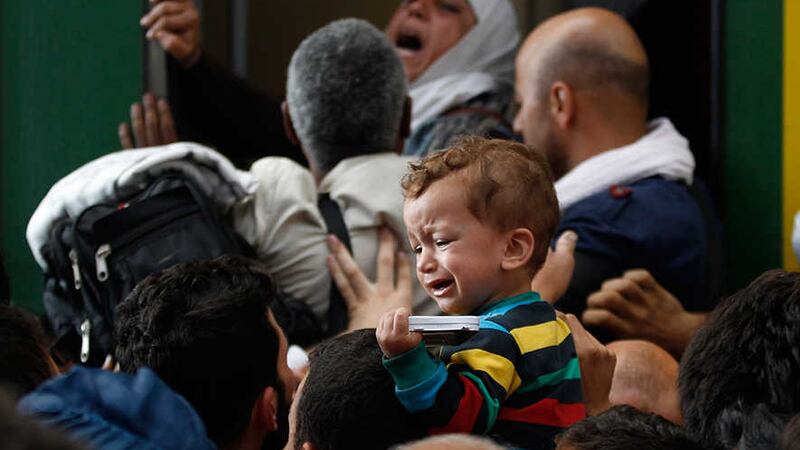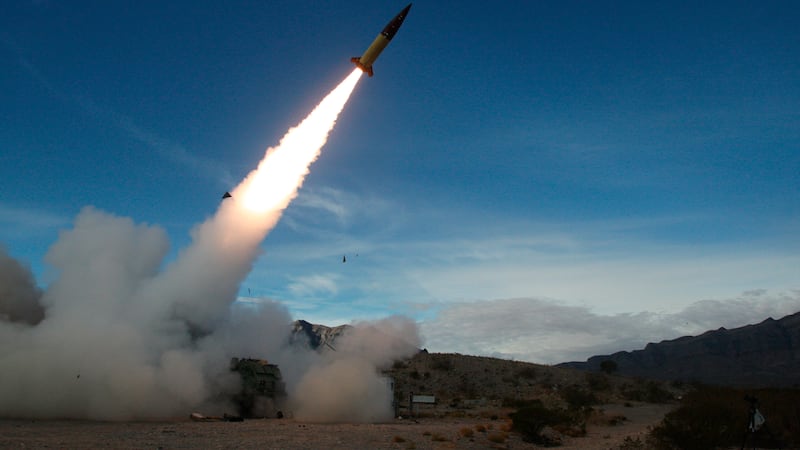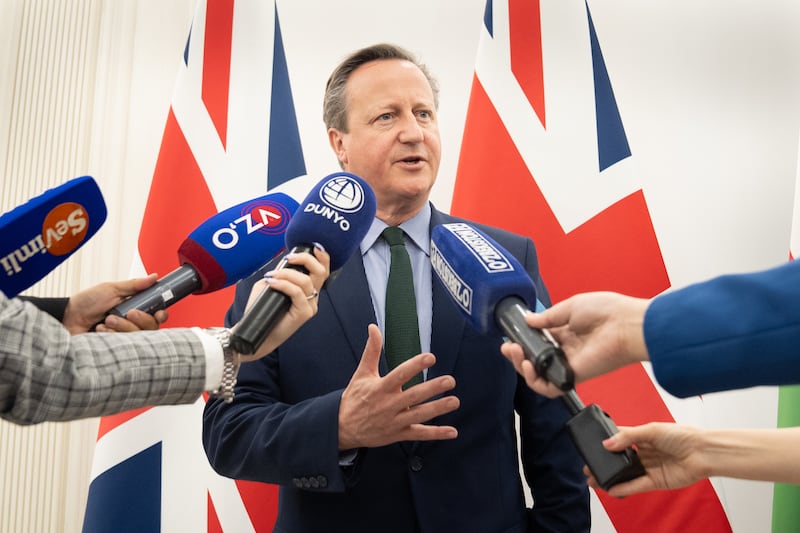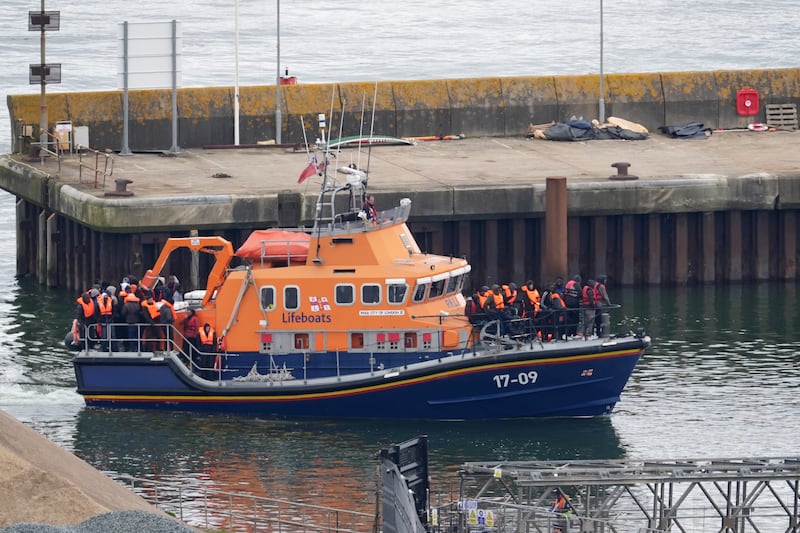Migrants have poured into Budapest's Keleti railway station after police stopped blocking its main entrance, and hundreds piled into trains despite announcements that there were no services to western Europe.
Hungary's railway company said it had suspended all direct trains from the Hungarian capital to western destinations "in the interests of railway transport security".
Crowds of migrants dashed into the station as police withdrew, and boarded trains waiting at the platforms despite announcements, including in English over station loudspeakers, that the trains were not heading west.
Some migrants could be seen getting off the domestic trains, while others remained on the carriages amid the confusion.
Police shut down the Keleti terminal to migrants on Tuesday, preventing those with valid tickets but no travel documents from boarding trains to Austria and Germany, the preferred destinations of many migrants.
The move came hours before prime minister Viktor Orban meets European Union leaders in Brussels to discuss the crisis.
On Wednesday, migrants had threatened to walk the 105 miles to the Austrian border if police would not let them board trains to their desired destinations in Austria and Germany.
Hungary opened the way on Monday, allowing more than 1,000 migrants to pack westbound trains - and inspiring a migrant surge to the capital - before it withdrew the option 24 hours later.
Hungary, which for months permitted most applicants to head west after short bureaucratic delays, now says it will not let more groups deeper into the European Union and claims EU backing for the move.
With an estimated 3,000 people camping outside the station, conditions had grown increasingly squalid despite the efforts of volunteers distributing water, food, medicine and disinfectants.
The train operator said there will be no services to Austria or Germany for "railway transport" security reasons.
Prime minister Viktor Orban is scheduled to meet EU chiefs later to discuss his country's handling of its unprecedented flow this year of more than 150,000 migrants, chiefly from Syria and other conflict zones.
While Germany said it expects to receive 800,000 migrants this year, quadruple last year's figure, many EU members face criticism for failing to commit to housing more asylum seekers.
Officials had opened the way to the station on Monday, allowing more than 1,000 migrants to pack westbound trains and inspiring a surge to the capital, before closing it off to migrants 24 hours later.
The tent city outside Keleti grew to about 3,000 migrants camped out on the concrete plaza and subway entrances.
Conditions grew increasingly squalid despite the efforts of volunteers distributing water, food, medicine and disinfectants.
The fate of Europe's asylum seekers is dividing Hungary.
Around 5,000 people marched in Budapest on Wednesday night to oppose racism and call for more state support for the new arrivals from the Middle East, Asia and Africa.
Some 110 miles to the south, on Hungary's border with Serbia, anti-immigrant hatred was on graphic display. Leaders of the neo-fascist Jobbik party - the third-largest in Hungary - led 300 supporters on a march that confronted the newest migrant arrivals with xenophobic verbal abuse.
Waving Hungarian and party flags, the Jobbik activists shouted into the faces of migrants walking into Hungary along train tracks that pass through Hungary's border security barriers. The migrants, many of whom had just walked for hours from Serbia, appeared terrified.
"Hungary has to be able to turn back everyone who arrives at the Hungarian borders as an illegal migrant - everyone without distinction," Jobbik leader Gabor Vona told supporters in a speech on the border.
"There is a real humanitarian catastrophe taking place here, but the humanitarian catastrophe is not about what will happen to the poor immigrants. The humanitarian catastrophe is what will happen to poor Hungary. This is what everyone should be asking."
Hungary's government says it will pass a bill soon that creates new prison-style migrant holding centres near the border that allow for fast-track decisions, limited rights of appeal and easier deportations back to Serbia.








